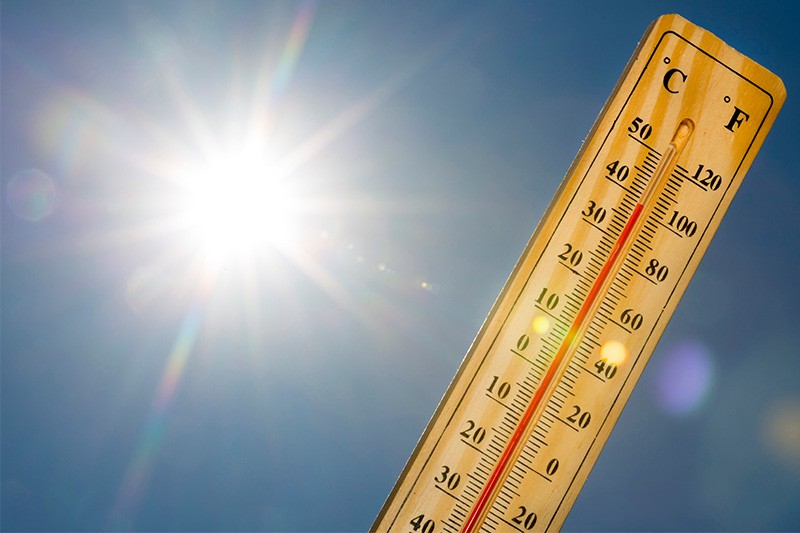
Heat waves in the U.S. kill more people in their homes than anywhere else
UC nursing professor speaks with The Cincinnati Enquirer about heat-related deaths
Summer is officially here.
The Summer Solstice began on Thursday, June 20, 2024, but for many of us the hotter than normal temperatures would suggest The Old Farmer’s Almanac is a bit late with its announcement.
Millions of Americans are battling a punishing heat dome that has settled over the northeastern United States creating the potential for record-breaking high temperatures this week that stretch from the Queen City in Cincinnati to Portland, Maine.
That puts some populations - households without air conditioning - at grave risk.
The Cincinnati Enquirer conducted an analysis of National Weather Service data and found that almost half the 3,142 people who died from heat-related ailments in the past 20 years died at home. Many people who die in heat waves lack air conditioning or have health problems that can be fatal in excessive heat, the Enquirer found.

Associate Professor Tasha Turner-Bicknell
Tasha Turner-Bicknell, an associate professor in the UC College of Nursing, spoke with the Enquirer about its findings. She is also director of advanced public health nursing programs at UC.
“When the weather gets this extreme, there's a definite risk,” Turner-Bicknell, told the Enquirer.
She says lack of air conditioning in the home is a factor for so many people dying of these heat-related deaths.
“Most of us take for granted that we live and work in air-conditioned environments,” she explains. "But we have a lot of members of our community that do not have air conditioning.”
Social isolation can be especially dangerous for those with disabilities or mobility-restrictions, according to Turner-Bicknell, who rely on others to leave their homes.
“Maybe they use a walker or a cane or a wheelchair, and maybe their caregivers are not available," she says. "They might be unable to get out of their house without assistance.”
Read the full Cincinnati Enquirer story online.
Learn more about Associate Professor Tasha Turner-Bicknell online.
Related Stories
Spectrum News: Pediatric stroke survivor provides care at Cincinnati Children's Hospital
November 14, 2022
David Moskowitz, a UC College of Nursing graduate, is profiled by Spectrum News about his battle with pediatric stroke and a rare genetic condition.
Cincinnati.com: Ohio decriminalized fentanyl test strips. Here's why experts say that matters
January 11, 2023
Public health agencies and advocates in Ohio will no longer be breaking the law when they hand out potentially life-saving fentanyl test strips. Cincinnati.com reported that Governor Mike DeWine signed a bill into law Jan. 3 decriminalizing the paper test strips that detect fentanyl and its analogues in drugs. The law takes effect sometime in April. Tasha Turner-Bicknell of the UC College of Nursing was one of the experts interviewed for the story.
Study examines link between family incarceration, children’s health
July 29, 2024
Research from Samantha Boch, PhD, assistant professor in the UC College of Nursing was cited in a story by The Washington Post. She has examined the ripple effects of mass incarceration. Her analysis suggests that youth with a family history of incarceration are more likely to be diagnosed with physical and mental health conditions than other youth.
